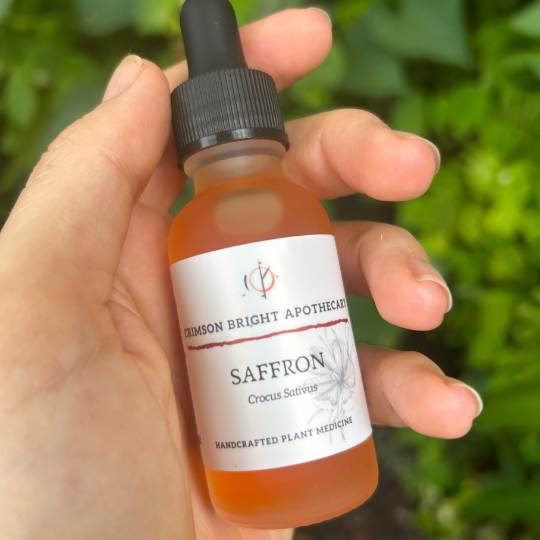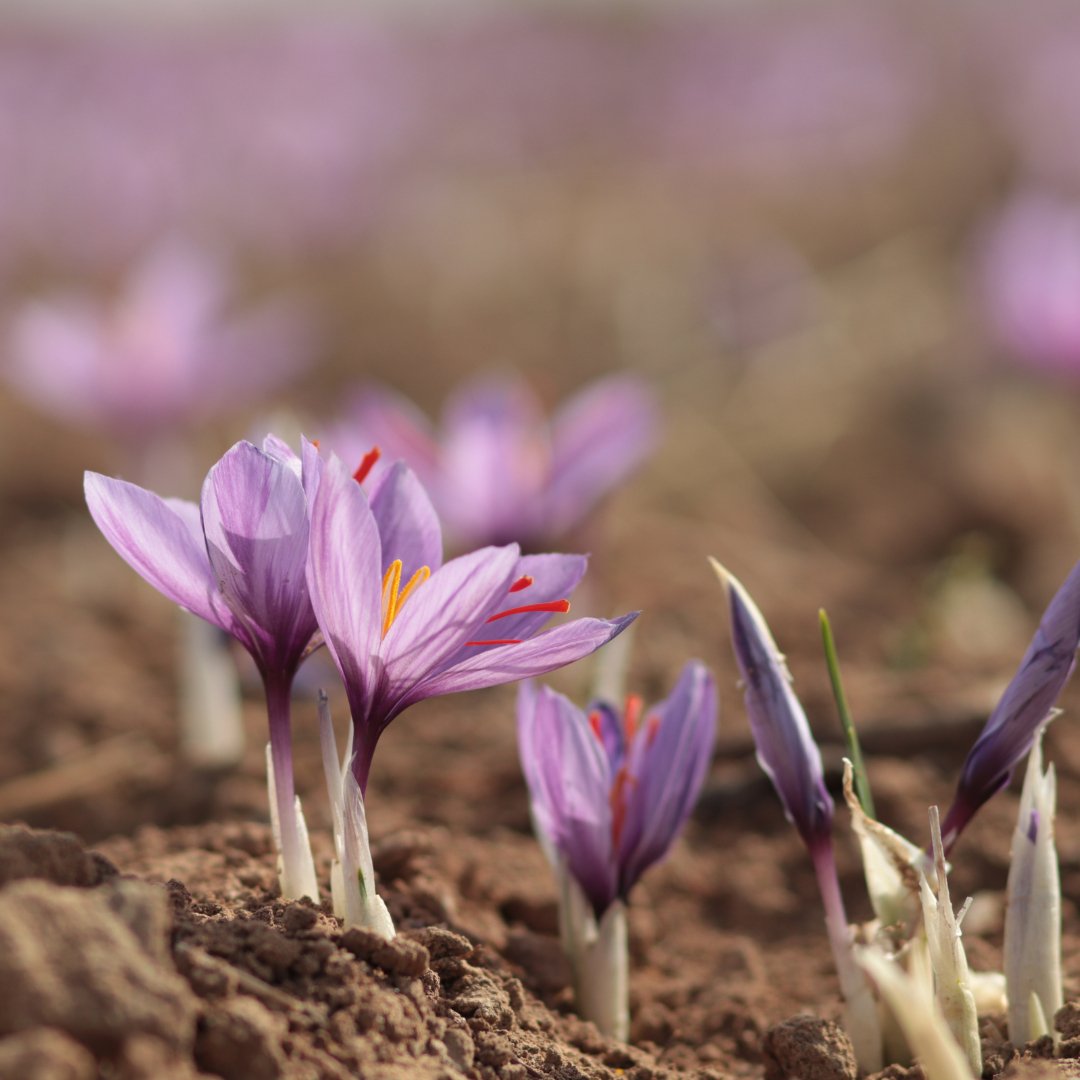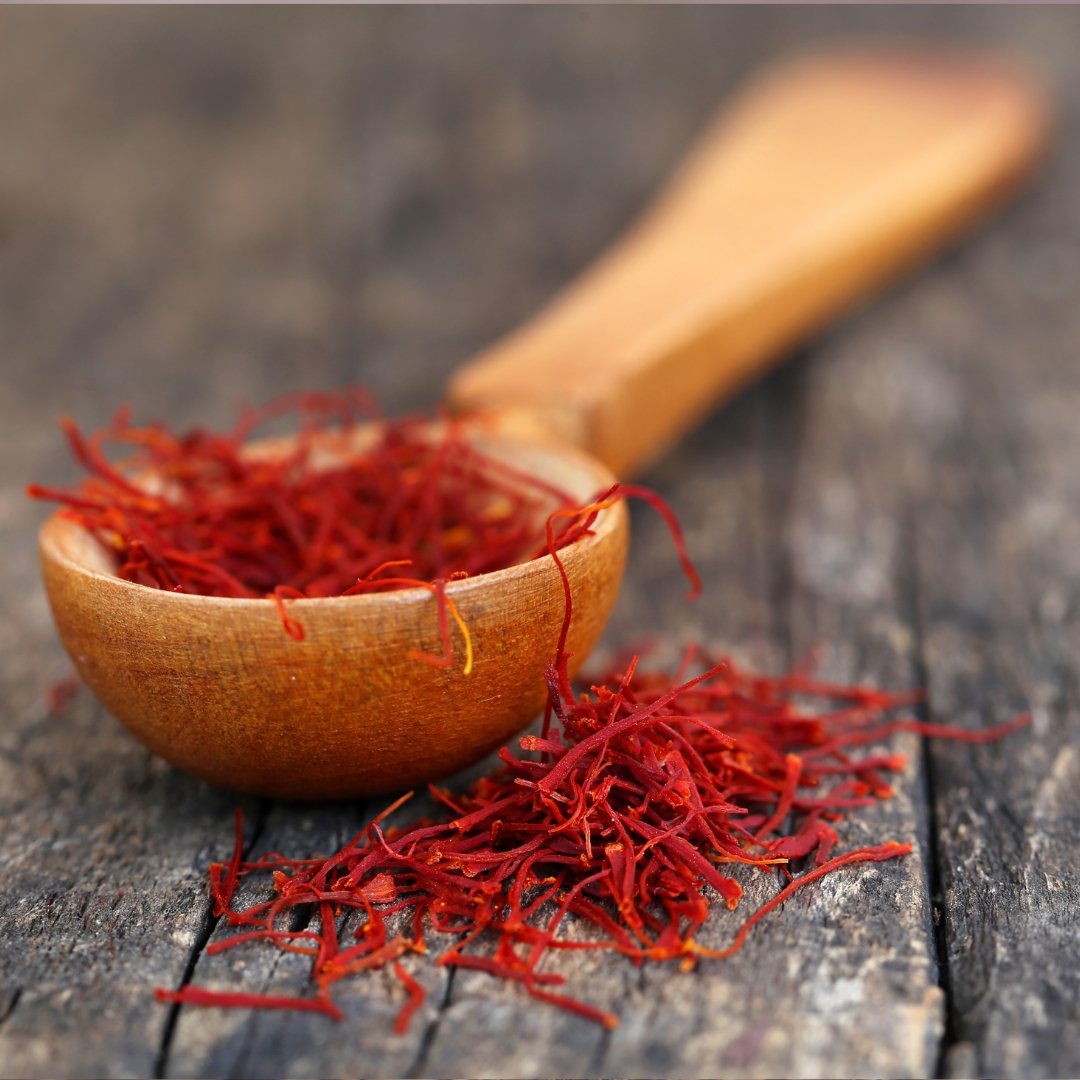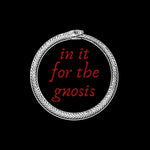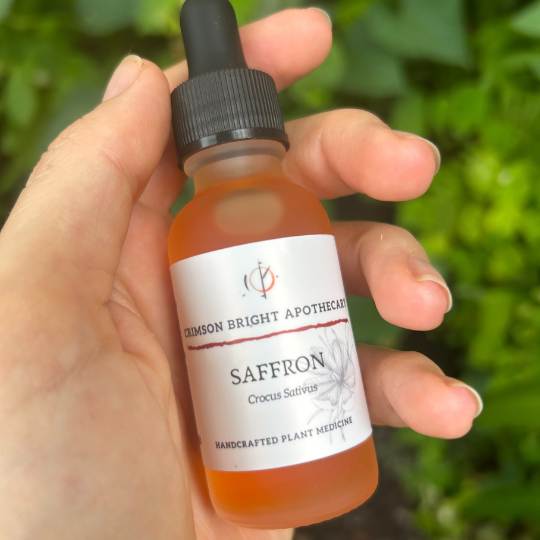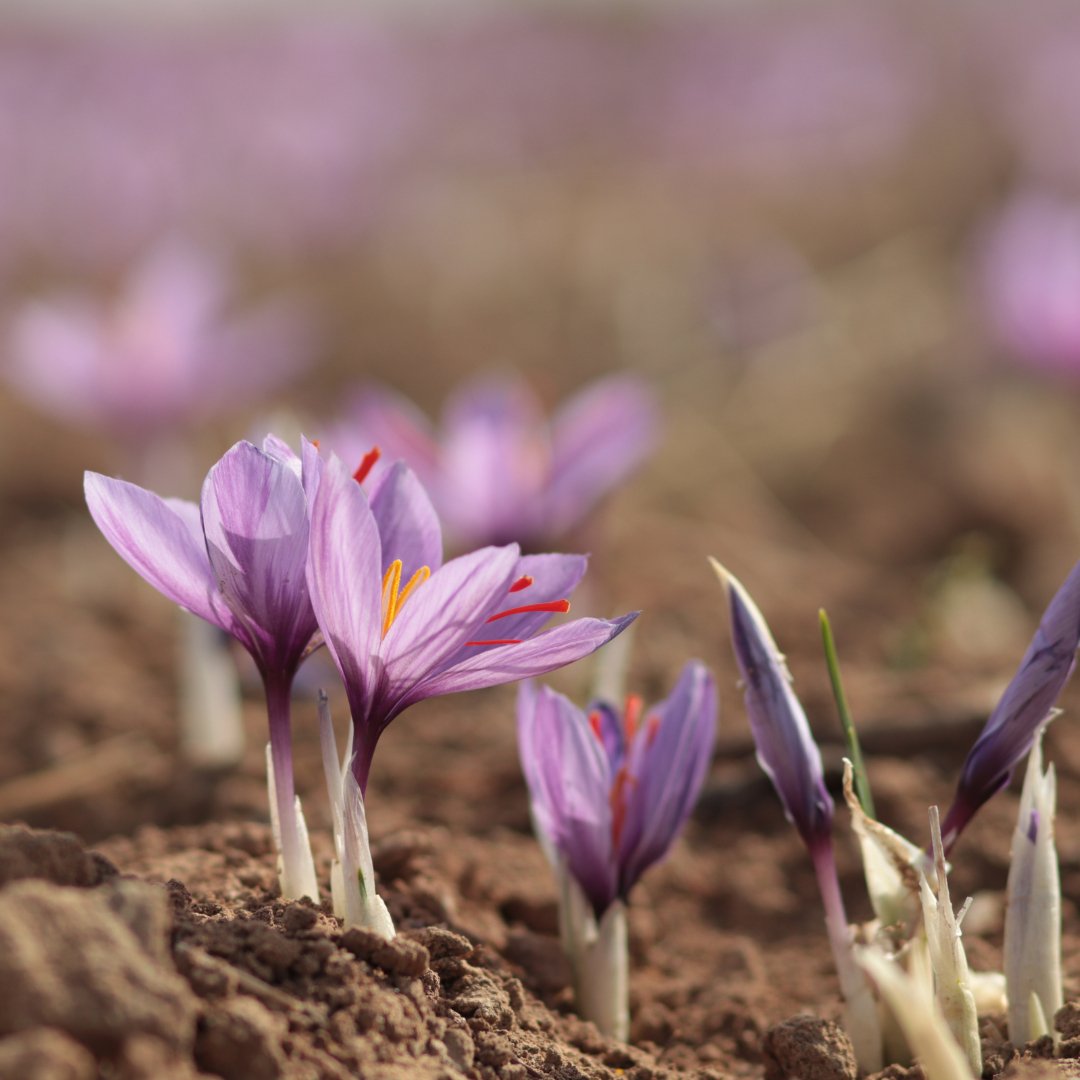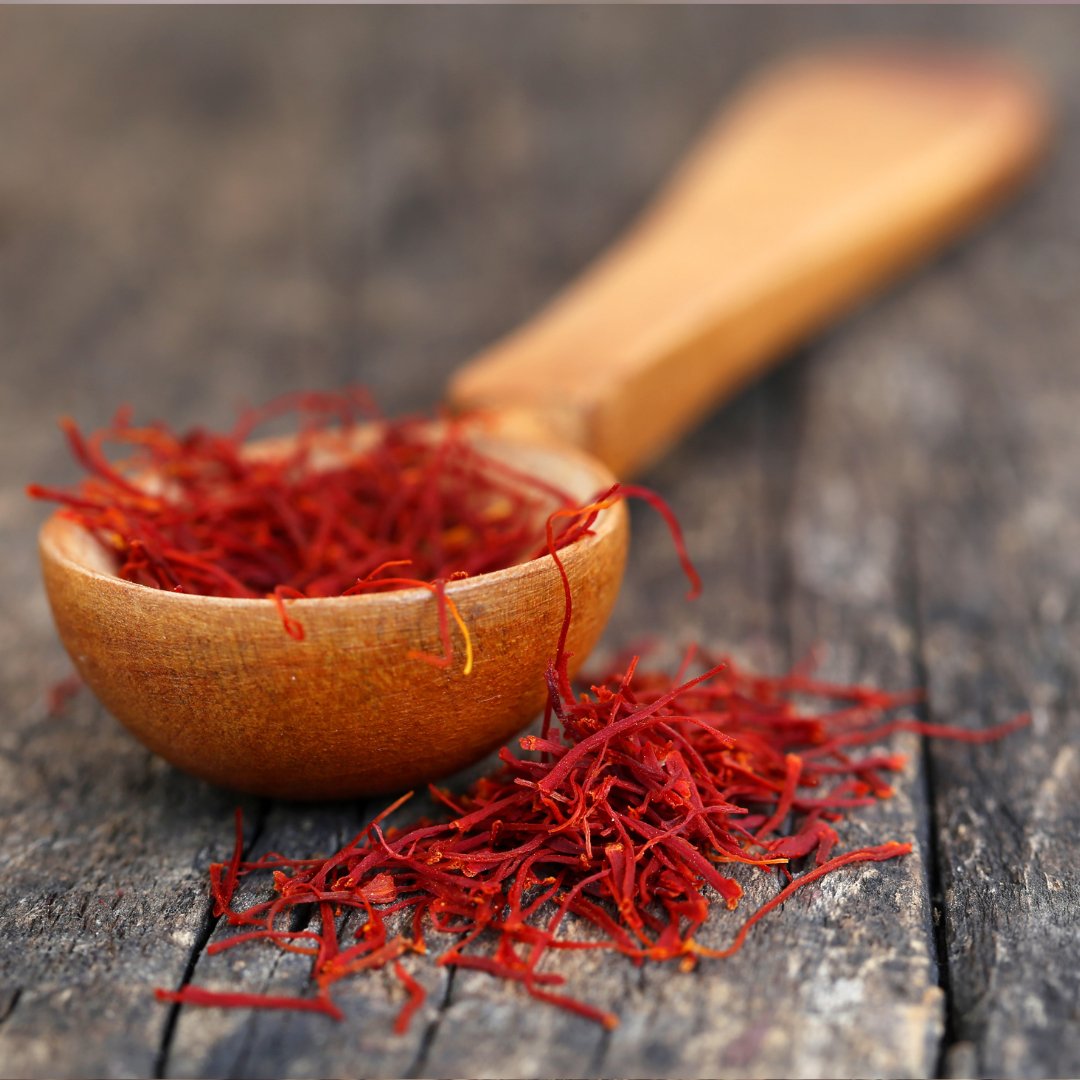Crimson Bright Apothecary
Saffron (Crocus Sativus) Tincture
Couldn't load pickup availability
Saffron for Depression and Anxiety
Affectionately referred to as "sunshine spice" and "nature's xanax", many herbal medicine practitioners are recommending Saffron for depression, anxiety, lack of focus, and other emotional and physical imbalances. Studies have shown positive benefits for degenerative nerve diseases, eye health, PMS, and more.
We can see echoes of this flower's divine significance in many different parts of the historical world; appearing in Mesopotamian cave art, and having been used to dye fabrics found in many sacred places, including ancient Egyptian tombs and the robes of Tibetan monks. The mystical powers of Saffron have guided many on their path to the universe’s secrets.
In Ayurveda, Saffron is said to possess a "pure" quality that can balance the body's three doshas and promote feelings of happiness, peace, compassion, and devotion in the person. It is most well known for its abilities to heal the nervous system and nourish reproductive organs.
Saffron also happens to be (literally) worth its weight in gold. This flower plays a part in mythology throughout the world, and is often associated with wealth, opulence, divinity, and sensuality.
Saffron's use is ancient. Saffron-based pigments have been found in 50,000 year-old paintings in northwest Iran. It conjures romance, royalty, and delicacy wherever it appears.
The use of Saffron in the treatment of mild-to-moderate depression is well documented. "Saffron's antidepressant effects potentially are due to its serotonergic, antioxidant, anti-inflammatory, neuro-endocrine and neuroprotective effects," says one such study.
Saffron has a positive effect on the neurons of the hippocampus, and possibly on NMDA receptors, which affect neuronal plasticity and memory. Regular ingestion of this plant medicine has positive effects on memory and learning, depression, and anxiety.
Saffron and ADHD
Saffron can positively impact the brain's production of dopamine, serotonine, and norepinephrine, making it a good choice for those who experience symptoms of ADHD. This mechanism can help with memory, anxiety, depression, and naturally promote focus and homeostasis.
Chemical Components of Saffron
Saffron’s extraordinary chemistry contains over 150 volatile compounds.
The three main chemical components in Saffron are crocetin esters, picrocrocin and safranal. However, it also contains riboflavin, thiamine, minerals, and many other components that can be beneficial to physical and mental health.
While the pharmaceutical industry has managed to isolate certain chemical components in Saffron, experienced herbalists and plant medicine practitioners know that it is the synergy of a plant's complete and un-altered chemical symphony that makes the medicine most effective.
Saffron Healing Properties
Saffron has demonstrated healing properties for many conditions in the body and mind. It plays a prominent role in Ayurveda, and was included in the Catalogues of Medicinal Plants and in the European Pharmacopoeia from the 16th until the 20th centuries.
Saffron is most well known for its positive effects on the nervous system, cardiovascular system, and libido, but it has been used for many other things as well. Here are some of the various benefits that Saffron has been used for throughout history:
Antidepressant
Anxiolytic - anxiety
Antineoplastic - inhibiting development of tumors and malignant cells
Antispasmodic
Eupeptic - digestion
Sedative
Carminative - relieves digestive gas
Diaphoretic - increase sweating
Expectorant
Stomachic
Stimulant
Aphrodisiac
Emmenagogue - induces menstruation
Abortifacient - induces miscarriage
Research has also shown that Saffron can protect eye health, reduce degeneration of the retinas, suppress appetite and food cravings, reduce PMS and PMDD symptoms, and relieve menstrual cramps.
Saffron can also prevent degenerative impairment of learning and memory, and the type of damage that can occur from chronic stress. This can be very helpful for neurodegenerative diseases, such as Alzheimer's, Parkinson's, and MS. It has also been shown to be beneficial for people with fibromyalgia.
. . .
Dosing:
5-20 drops (or 0.5ml), as needed.
*Personal Note: I have noticed that the daily use of Saffron is often too much for most people, and that the high doses (30 mg/day) used in most Western studies is considered to be extremely high from an Ayurvedic and naturopathic perspective (1 mg/day). I encourage everyone working with this medicine to experiment with what dose works for you -- taking 0.5ml for a day or two, or once a week will be helpful. On other days, just a few drops of this medicine may suffice. If your system is feeling overwhelmed, please take a break -- too much sunshine may throw the body out of balance.
Saffron is not recommended for those who are pregnant, or may become pregnant. Saffron has historically been used to induce menstruation and miscarriage. Over-use of Saffron may affect your menstrual cycle.
These statements have not been evaluated by the FDA and are not intended to diagnose, treat, or prevent any medical condition.
Ingredients:
Organic rum, Crocus Sativus (Saffron) threads.
. . .
More Research about Saffron:
Clinical Evidence on the Effects of Saffron (Crocus Sativus L.) in Anxiety and Depression
"Overall results showed that saffron possessed better efficacy in the improvement of depressive symptoms when compared with placebo, whereas saffron was as effective as synthetic antidepressants. No significant difference was detected in the incidence of adverse effects between saffron and placebo or between saffron and antidepressants."
Share
